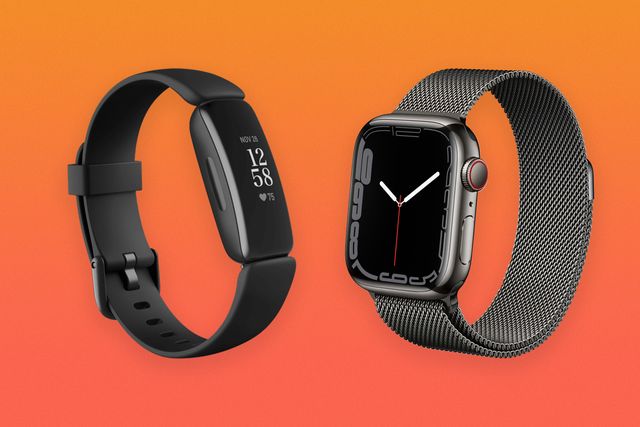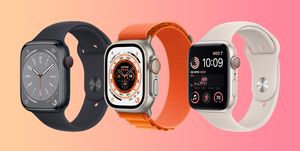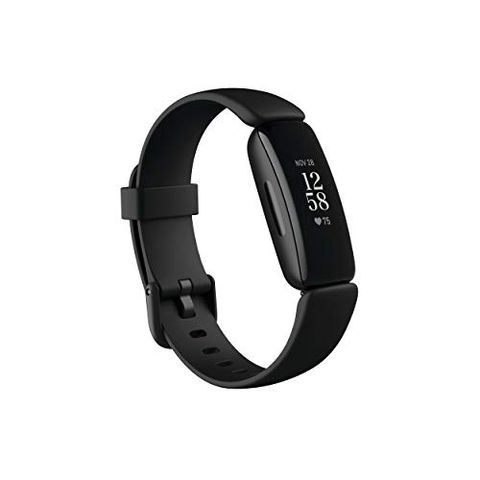In the past, there has been a clear divide between fitness trackers and smartwatches. A fitness tracker was a band with sensors that relayed data to your smartphone; a smartwatch, meanwhile was essentially an extension of your smartphone, a wrist-bound display that allowed you to check texts, emails and social media.
Over the last few years, however, the two devices have converged. Fitness trackers became more complicated, adopting screens and even the ability to show smartphone notifications, while smartwatches really leaned into the fitness side of things. Today, the old guard of fitness trackers, like Jawbone and Pebble and even Misfit (to some extent), are pretty much extinct. And the most popular device for fitness tracking — the Apple Watch — is actually a smartwatch.
That said, there are a number of reasons why you would choose a basic fitness (also referred to as activity bands) like a Fitbit Inspire 2 ($70) or a Garmin Vivosmart 4 ($99) instead of a smartwatch like an Apple Watch or a Garmin Forerunner. Here’s what you need to know.
Smartwatches do more — full stop
The main difference between a fitness tracker and a smartwatch is the list of features and smart abilities. A smartwatch is generally going to have all of the same fitness tracking abilities as a fitness tracker and then some; for instance, most smartwatches have heart rate sensors and built-in GPS for more accurate health tracking, along with coaching and specific workout-tracking, which only the most advanced fitness trackers have.
Smartwatches have more advanced features, too, like music control and built-in Bluetooth (to connect to wireless headphones), built-in mics for calls and voice assistant, and NFC for on-the-go payments. They also come in cellular models, which allows them to operate fully independently from a smartphone. Again, some of the more advanced fitness trackers can have some of these smart features and capabilities, but generally, most fitness trackers are way less versatile.
The one feature that most feature fitness trackers have is battery life. Because smartwatches have large bright displays and are way more demanding in terms of power, the also generally have worse battery life. For instance, the Apple Watch needs to be charged almost every day, while Fitbit’s Inspire 2 ($70) or Garmin Vivosmart 4 ($100), which are two of the most popular fitness trackers, have a long battery life.
But that’s not always a good thing
Fitness trackers are definitely smaller than smartwatches, and that is arguably the biggest appeal for them. A lot of people don’t like wearing watches because they’re big and bulky, but they still want something to track their steps and tell them how many calories they burned — that’s exactly what a fitness tracker is good at. They don’t have large displays and relatively lightweight, meaning they’re also more comfortable wearing while you sleep.
A good fitness tracker has price on its side
The most affordable smartwatches are all around the $200 mark. That’s about how much the Samsung Galaxy Watch4 ($210), Apple Watch Series 3 ($199), and Fitbit Versa 2 ($180) all cost. However, the cost of smartwatches can way up depending on its size, the materials its made of, if it’s a cellular model and what fitness-focused features you want it to have.
For example, a Garmin Forerunner, which is a rugged smartwatch with some really advanced runner-specific features, can cost around $600. And you can get an Apple Watch that’s made out of more expensive materials, like titanium or ceramic, are it can cost well over $1,000. On the flip side, most of the popular fitness trackers, like the Fitbit Inspire 2 ($70) and Garmin Vivosmart 4 ($92+), are significantly cheaper.





















